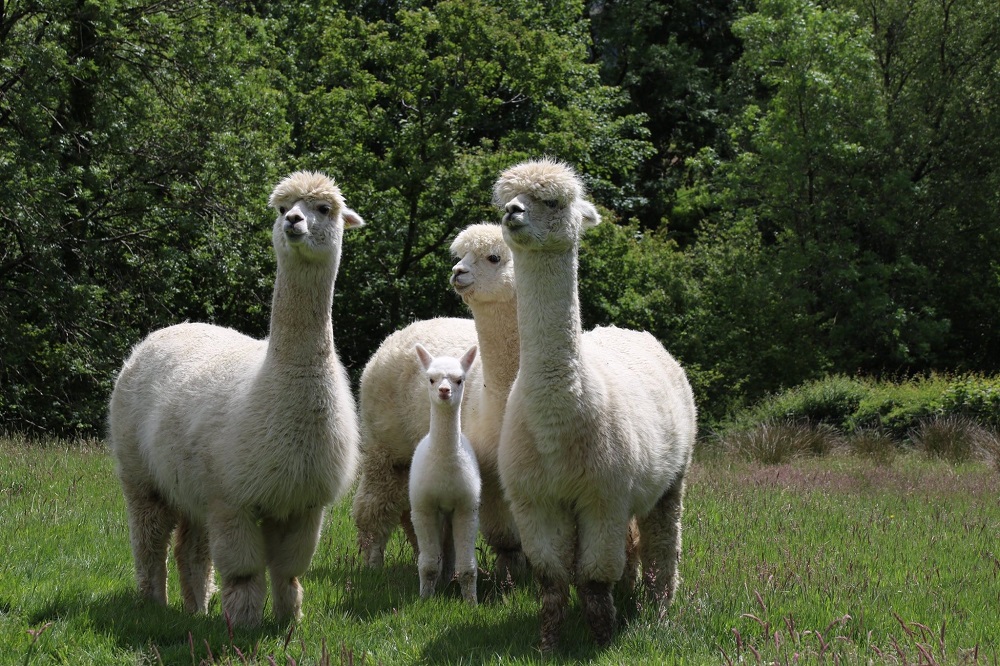Alpaca grazing could help tackle climate change – new research

Scientists at Aberystwyth University are researching whether grazing alpacas alongside other animals could help farmers tackle climate change.
The new project will explore the efficiency and environmental benefits of grazing different species together, such as sheep, goats and alpacas.
The work at the University’s Pwllpeiran Upland Research Centre builds on previous research, which found that mixed grazing of sheep with cattle improved lamb growth rates and animal health and cut greenhouse gas emissions. However, despite these benefits, cattle numbers in the uplands continue to decline.
The new study will focus on the unexplored potential of grazing sheep with less common species, such as alpacas and goats, and related scope to improve pasture use efficiency and tackle climate change. Like cattle, these species have different grazing habits to sheep.
Feed trials
Feed trials for the research will begin this month to gather data on the comparative digestive efficiency of alpacas, goats and sheep on different forages and monitor their methane emissions.
This will be followed by grazing trials in the spring and summer of 2023 and 2024.
Professor Mariecia Fraser from Aberystwyth University’s Institute of Biological, Environmental and Rural Sciences (IBERS) said: “Alpacas have been overlooked as potential conservation grazers.
This project is looking at new ways of grazing these animals and how they could help tackle climate change. It fits perfectly with the main research priority here at IBERS in Aberystwyth to reduce agricultural greenhouse gas emissions and help achieve net zero targets.
“Alpacas have adapted to survive on poor quality diets. They may also benefit the biodiversity of grasslands because they eat invasive species that are abundant in the Welsh uplands. The removal of these invasive species, such as Molinia, also has positive implications for the availability of food items that sheep prefer.
Likewise, the husbandry and infrastructure requirements of alpacas are similar to those of sheep, which could allow for a relatively easy adaptation of current upland farming systems.
“Agricultural support payments are changing and continuing to shift away from primary production towards conservation management. So, there could be an opportunity to include these alternative livestock species into future funding schemes.”
Support our Nation today
For the price of a cup of coffee a month you can help us create an independent, not-for-profit, national news service for the people of Wales, by the people of Wales.






Alpaca racing for young farmers sounds like fun to me…
I see another aspect to a symbiotic relationship between short necked sheep and the long necked alpaca, the alpaca could keep watch over the flock.
A small point, our hardy mountain sheep are protected by lanolin against the elements whereas the alpaca do not have such protection as they have no lanolin…
Lastly alpacas are known to protect their herd against foxes and possibly dogs, this could be of great advantage…